Andrea Mannocci
A Survey on Knowledge Organization Systems of Research Fields: Resources and Challenges
Sep 06, 2024
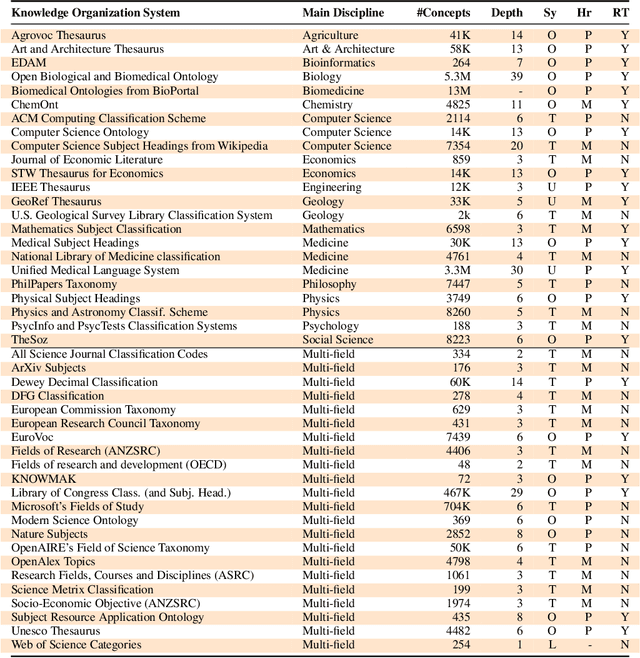
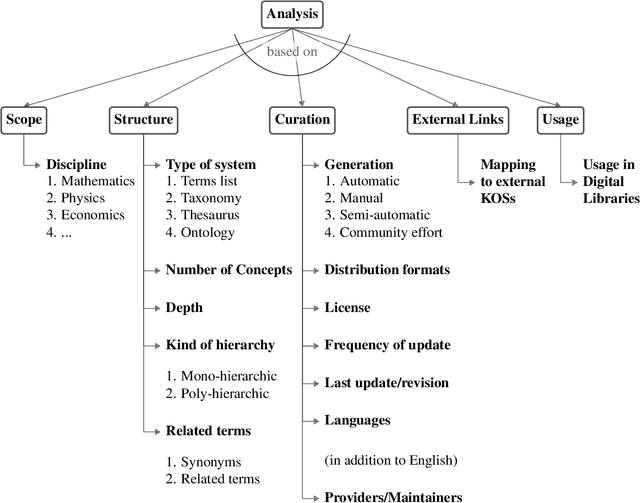
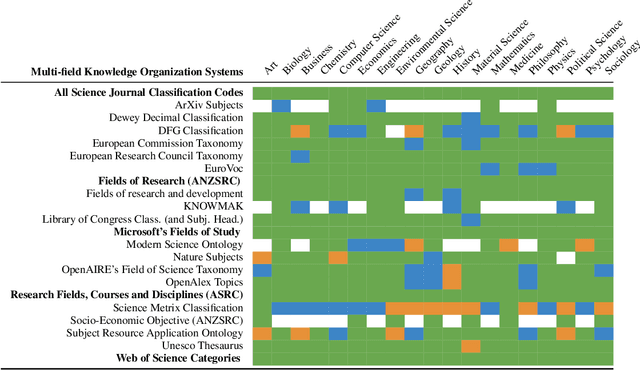
Abstract:Knowledge Organization Systems (KOSs), such as term lists, thesauri, taxonomies, and ontologies, play a fundamental role in categorising, managing, and retrieving information. In the academic domain, KOSs are often adopted for representing research areas and their relationships, primarily aiming to classify research articles, academic courses, patents, books, scientific venues, domain experts, grants, software, experiment materials, and several other relevant products and agents. These structured representations of research areas, widely embraced by many academic fields, have proven effective in empowering AI-based systems to i) enhance retrievability of relevant documents, ii) enable advanced analytic solutions to quantify the impact of academic research, and iii) analyse and forecast research dynamics. This paper aims to present a comprehensive survey of the current KOS for academic disciplines. We analysed and compared 45 KOSs according to five main dimensions: scope, structure, curation, usage, and links to other KOSs. Our results reveal a very heterogeneous scenario in terms of scope, scale, quality, and usage, highlighting the need for more integrated solutions for representing research knowledge across academic fields. We conclude by discussing the main challenges and the most promising future directions.
BIP! Scholar: A Service to Facilitate Fair Researcher Assessment
May 06, 2022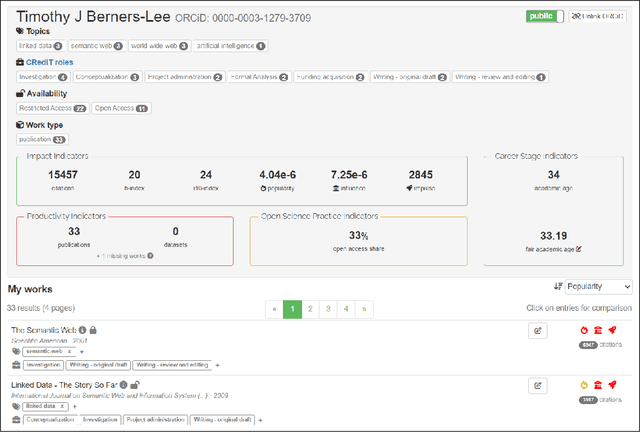

Abstract:In recent years, assessing the performance of researchers has become a burden due to the extensive volume of the existing research output. As a result, evaluators often end up relying heavily on a selection of performance indicators like the h-index. However, over-reliance on such indicators may result in reinforcing dubious research practices, while overlooking important aspects of a researcher's career, such as their exact role in the production of particular research works or their contribution to other important types of academic or research activities (e.g., production of datasets, peer reviewing). In response, a number of initiatives that attempt to provide guidelines towards fairer research assessment frameworks have been established. In this work, we present BIP! Scholar, a Web-based service that offers researchers the opportunity to set up profiles that summarise their research careers taking into consideration well-established guidelines for fair research assessment, facilitating the work of evaluators who want to be more compliant with the respective practices.
Detection, Analysis, and Prediction of Research Topics with Scientific Knowledge Graphs
Jun 24, 2021



Abstract:Analysing research trends and predicting their impact on academia and industry is crucial to gain a deeper understanding of the advances in a research field and to inform critical decisions about research funding and technology adoption. In the last years, we saw the emergence of several publicly-available and large-scale Scientific Knowledge Graphs fostering the development of many data-driven approaches for performing quantitative analyses of research trends. This chapter presents an innovative framework for detecting, analysing, and forecasting research topics based on a large-scale knowledge graph characterising research articles according to the research topics from the Computer Science Ontology. We discuss the advantages of a solution based on a formal representation of topics and describe how it was applied to produce bibliometric studies and innovative tools for analysing and predicting research dynamics.
BIP! DB: A Dataset of Impact Measures for Scientific Publications
Jan 28, 2021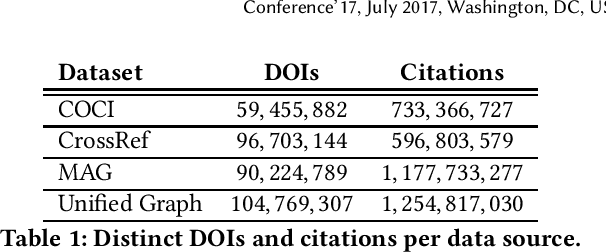
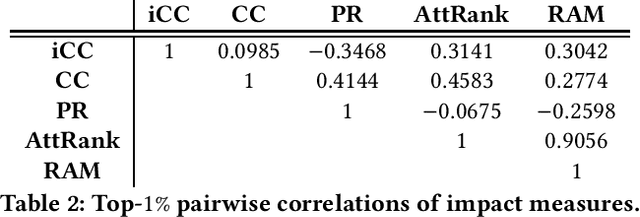
Abstract:The growth rate of the number of scientific publications is constantly increasing, creating important challenges in the identification of valuable research and in various scholarly data management applications, in general. In this context, measures which can effectively quantify the scientific impact could be invaluable. In this work, we present BIP! DB, an open dataset that contains a variety of impact measures calculated for a large collection of more than 100 million scientific publications from various disciplines.
 Add to Chrome
Add to Chrome Add to Firefox
Add to Firefox Add to Edge
Add to Edge